Reflection: Long-Term Travel And The Journey to Becoming Location Independent
Reading Time: [est_time] In December 2015, Matt and I concluded our first circuit of travel and flew back to Singapore, where I had two months to catch up with family and friends. During meetups, some questions kept popping
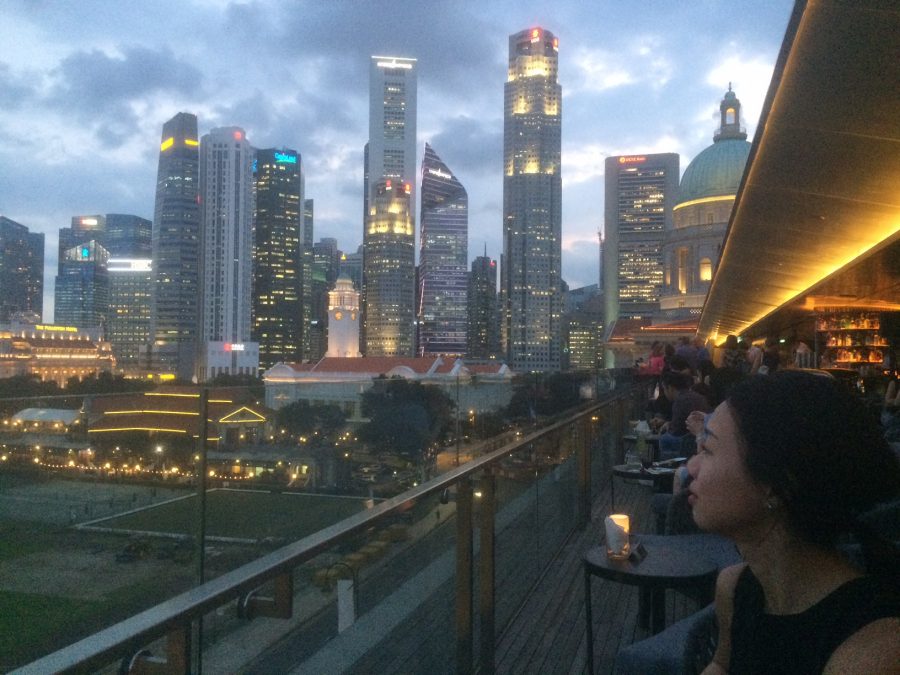
Reading Time: 10 minutes
In December 2015, Matt and I concluded our first circuit of travel and flew back to Singapore, where I had two months to catch up with family and friends. During meetups, some questions kept popping up in conversations, and then there were other questions too that had never crossed my mind. I’ll always appreciate the people who ask thoughtful questions, no matter how challenging it is for me to answer them, for three reasons. First, it shows that the other person cares enough to try to get to know me. Second, it shows curiosity, which is one of my favorite traits. Third, a thoughtful question creates the space for both the questioner and me to uncover more self-awareness. Since Matt has written about his “lessons learned from quitting a lucrative career to chase a dream”, I reckon it’d be apt for me to do a similar piece, based on the questions I’ve been asked.
P R E P A R A T I O N
“For what gives value to travel is fear. It breaks down a kind of inner structure we have. One can no longer cheat — hide behind the hours spent at the office or at the plant.”
– Albert Camus
1. How did you finance your travel?
The first round of our travel was meant to be a sabbatical and we didn’t get much business done. Matt and I earned some money from keynotes and the sales of Travel, Learn, Earn, but the revenue was not enough for us to get by. Most of the time, we were dipping into our savings. The second round of travel, which begins in March 2016, will be different as we focus more on building both a lifestyle and incomes that are sustainable.
2. How much did you pack for a long trip like this?
I was carrying a 38-litre backpack which weighed about 11 kilograms. Below is a picture of all the clothes that took me through days ranging from -4 to +40 degree Celsius.
Living out of a suitcase made me realize how I had taken many things for granted. Things that would not pose a problem in the short term become enormous inconveniences if we live by them daily in the long term. On the other hand, packing up and leaving for a long-term trip is the best way to reflect on our wants and needs. It’s also the fastest way to transform our lives to living like a minimalist. A side note: Being a minimalist isn’t only about the things we own, it also includes how we think and what we allow to enter our consciousness.
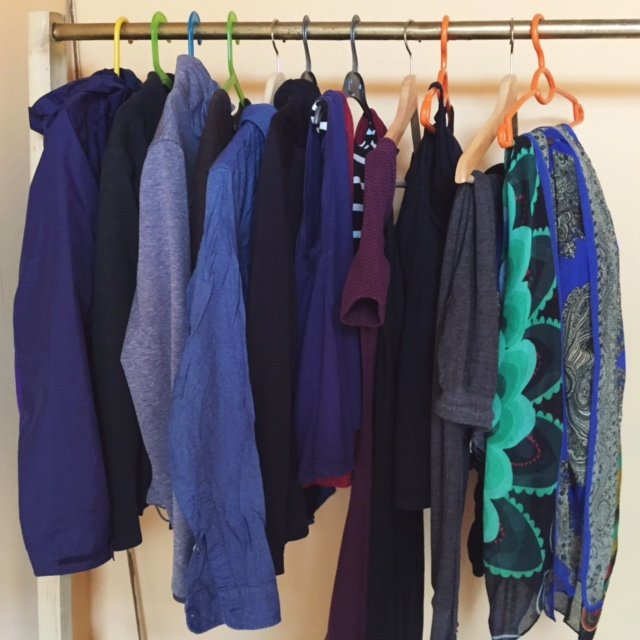
These are all the clothes that I packed for the seven-month trip.
3. Were you backpacking?
What does backpacking entail? I’m not sure. I was carrying a backpack. We had a budget to work with but it wasn’t a shoestring. We tried to cut back on transportation costs by taking buses and trains instead of private cars and airplanes. We tried to save on accommodation too—choosing homestays, airb&b and pensions over hotels; but once a month, we would pamper ourselves and check into a five-star hotel or luxury resort for two to four nights. Matt and I agreed that the monthly pampering was a beneficial commitment—while in the short-term, it may seem like we were being short-sighted, spending between USD200 to USD600 a night for a room (instead of the usual ~USD50/night cap) and dipping ruthlessly into our savings; in the long term, it has helped us to maintain the abundant mindset. Staying emotionally connected to the good life can be such a strong motivator for us to want to do well in business.
4. How did you plan your trip? Did you pre-book accommodation and transport in advance?
The only thing we planned in advance was the duration we wanted to spend in each country. Once we were in the country, our schedules were set a day to at most four days in advance. Most accommodation and transport were booked a day before arrival. There were other times when we arrived at a new place without accommodation and had to scout around for a place to stay. In the more remote areas, most homestays were not listed on the internet.
T R A V E L
“The huge masses of stone gripped me; on one side a mighty waterfall plunged far down. Everything was granite — it was like driving through the earth’s backbone.”
– Hans Christian Andersen
5. What’s your favorite country from the seven-month journey?
In seven months, we traveled to Switzerland, Italy, Portugal, Spain, Turkey, Georgia, and Armenia. We weren’t moving fast—spending between two to 14 days in every city/town we visited—and didn’t cover many places in each country. Based on the limited experience, I would pick Armenia as the most memorable place I’ve visited. I can’t say it’s my favorite country because every country has something unique to offer, especially Italy. I’ll probably never be sick of visiting Italy.
When planning for the trip, I had Armenia as a priority for two reasons. One, the country fascinated me mostly because of Armenians’ contribution to Singapore. Two, the tragic history; I wanted to be there to learn about their side of the story. During our three-week travel in Armenia, that fascination morphed into something in the same shape as an obsession.
Armenia is packed with nature candies—completely untouched, expansive plateaus with a few peaks in sight. The people in Armenia are some of the most strong-willed, loving, fun, and driven people I’ve met. Not to mention the women living in Yerevan, the capital city of Armenia, are gorgeous… drop-dead gorgeous. Based on my two weeks stay in Yerevan, Armenia, I would consider it as one of my favourite/most liveable cities—with nature within easy reach, smart and beautiful people, an abundant of historical and cultural learning points, relatively low cost of living, international F&B options, and a wine scene that is moving through a renaissance period in history.

One of our favorite activities in Yerevan, Armenia, was the weekly wine tasting session held at a restaurant called The Club.
6. Which country is the most beautiful?
Without a doubt, Georgia is the most beautiful country I’ve visited. The only thing missing from Georgia’s beauty is a cherub and handbell choir.
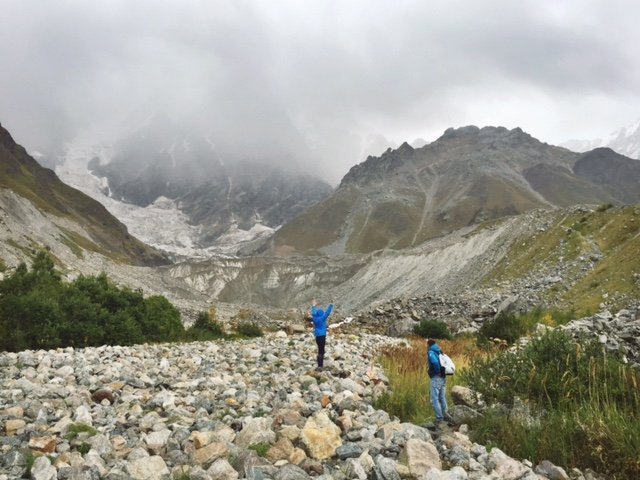
One of the many beautiful sights in Georgia.
7. Which country has the nicest and friendliest people?
I think the Italians make the most charming friends. The Spaniards are the most fun friends. The people in Turkey (Turks and Kurds included) are the most helpful. The Armenians ang Georgians are the most hospitable.
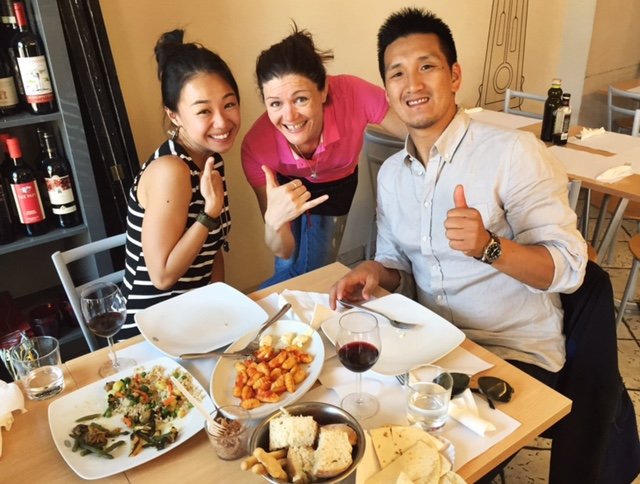
Lunch with Laura, whom we befriended in Bologna, Italy.
8. Which country has the best food?
All of Italy offers the best of everything edible. San Sebastian is a haven for budget-fine dinning. A ten-course, pintxo-hopping dinner—including dishes like foie gras, uni, octopus, and beef cheek—can be obtained at under €50. But if I have to choose one cuisine to eat for the rest of my life, I’ll pick the food from Turkey.
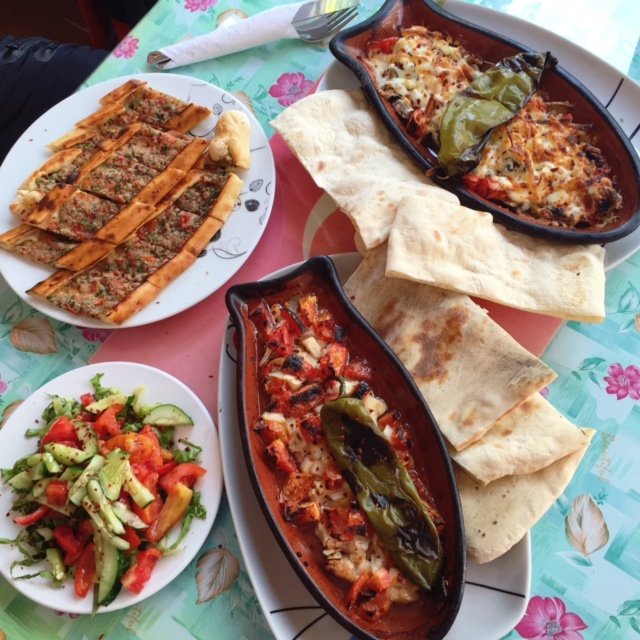
A typical meal in Turkey is filled with vegetables, grilled meat, and healthy colors.
9. Which country in the Caucasus region makes the best wine?
In that part of the world, outside of the capital cities, there’s little success in popping into a bar and expecting a decent glass of wine. Nevertheless, Turkey, Georgia, and Armenia—all three of the countries that we visited in the Caucasus—had offered us a few good tipples. It’s easier to find wines that suit a palate accustomed to international taste in Armenia. If you are tired of tasting the same things day in and day out, then the natural wines or qvevri wines in Georgia will be an interesting option to explore. The Caucasus offers a unique window that looks back into a forgotten chapter in the history of wine. For most of the wines there, their stories alone will make them an interesting wine to drink; and for some wines, they stand out with organoleptic merits. Here are a few recommendations:
Turkey
- Corvus Zeleia Vasilaki (dry white made from a native variety called Vasilaki)
- Turasan Emir (dry white made from a native variety called Emir)
Georgia
- Schuchmann Blanc de Blanc Chardonnay (dry sparkling white)
- Lagvinari Tsolikouri (qvevri-style, dry amber made from a native grape variety called Tsolikouri)
- Pheasant’s Tears Chinuri (qvevri-style, dry amber made from a native grape variety called Chinuri)
- Khareba Otskhanuri Sapere (qvevri-style dry red made from a native grape variety called Saperavi)
- Kvaliti Otskhanuri Sapere-Tsolikouri (qvevri-style dry red made from native red and white grape varieties, Otskhanuri Sapere and Tsolikouri)
- Lagvinari Saperavi (dry red made from Saperavi)
Armenia
- Karas Armavir (dry white made from Muscat)
- Armas Uru Qu Karmrahyut (dry red made from native varieties Karmrahyut, Areni Noir, Kakhet, and Meghrabuyr)
- Zorah Karasi (dry red made from Areni Noir)
- Tariri (dry red blend of Areni Noir, Merlot, and Cabernet Sauvignon)
10. What’s your fondest memory from the trip?
Meeting winery owners and winemakers make up some of the fondest memories during this trip. Special thanks to these people too for inspiring me and Matt through the wine glass:
- Armen from Old Bridge winery
- Bruno from Nada Fiorenzo winery
- Eko from Lagvinari winery
- Matteo from Ascheri winery
- Stefano from La Vite Turchese wine bar
- Vahe from Semina Consulting
- Sue and Matt from my circle of trust
- Zorik from Zorah winery
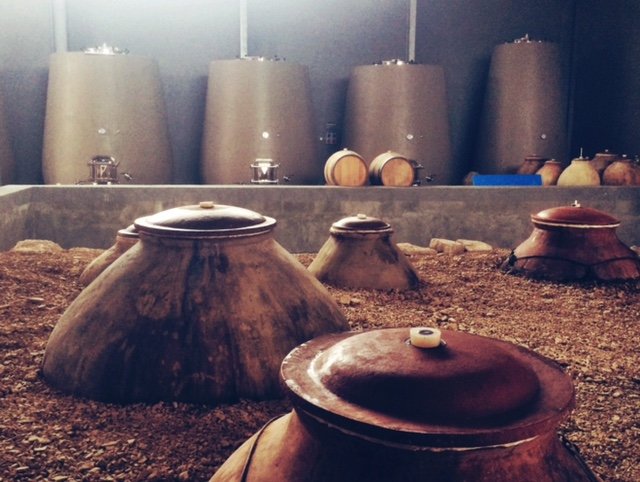
Qvevri and concrete vats found in the Zorah winery.
11. What was the most dangerous encounter you had?
There wasn’t a single moment that I felt that my life was in danger. The only experience that came close to that was when we were making a technically difficult descent from the Kackar mountain range in Turkey. However, there were a few unusual or upsetting encounters:
- In a few parts of southeast Turkey, where some people refer to as “Kurdistan”, armor tanks were a common sight but the vibes in the street were always normal and relaxed. One morning when we were having breakfast at an upscale hotel’s cafe, two fully armed men in military clothing marched up and stationed themselves at two ends of the patio. At one point, one of them had his rifle raised and looked like he was sharpening his aim. The staff at the café seemed nonchalant about the whole situation so I figured there was nothing to worry too.
- My ass was grabbed once in a crowded street in Istanbul, Turkey.
- In a hiking/tourist town called Mestia in Georgia, I was out alone around dinnertime and was followed twice, by one guy right after another. I could have easily considered them as stalkers, but “getting stalked” is a story. The two Georgian men probably wanted to chat or get to know me, in a manner of curiosity and not creepiness.
The world is less scary than we think. It’s beneficial to be cautious but if cautiousness consumes our openness to see people in a good light, then this life and world wouldn’t be worth exploring.
12. Were you able to maintain your workout and clean-eating habits while on the road?
Maintaining a strict workout routine was difficult, but it was mostly my fault because I didn’t try hard enough. The hiking, moving around with an 11-kg backpack, occasional pushups, squats with furniture, and hill sprints kept me in good shape but not in the same fitness level that I used to be. My weight remained the same as before the trip but I lost substantial muscle mass and strength. Eating clean was no issue at all in every country. All of the countries that we were in steered clear of processed food, except Portugal.
D E V E L O P M E N T
“It is not about how to get more things done; it’s about how to get the right things done. It doesn’t mean just doing less for the sake of less either. It is about making the wisest possible investment of your time and energy in order to operate at our highest point of contribution by doing only what is essential.”
– Greg McKeown
13. How does it feel to be location independent, working and traveling around the world simultaneously?
It feels free, we feel freed, and the freedom we have is all in exchange for the security and certainty we give up.
There is less societal and peer pressure. We are able to think and make choices independently based on our value systems and not on societal expectations. We have more freedom to live the kind of life we want, without the fear of looking bad or feeling judged. At work, being away from our usual community and environment enables us to be more creative, think differently, and more willing to take risks. The location-independent setup also helps us to focus on work and our own priorities, particularly for finance, because there is no pressure to keep up with social life and the cosmopolitan city lifestyle.
The challenge is around being disciplined and creating a routine that makes us deliver output on a regular basis. There’s always the temptation to ignore work for a day and go out to explore an unknown place.
14. How is it like traveling as a couple?
Heart-breaking at times, annoying sometimes, and beneficial all the time. Matt mentioned his views here. The crucial thing is to be self-aware and make an effort to stay independent—crafting the time to be alone, meet people, have your own share of fun, and work on your own development. Overall, I find the working-together part more difficult than traveling together.
15. What’s the hardest thing about this transition from living and working in Singapore to traveling all the time?
The biggest challenge is getting family and friends to understand what I’m doing and why I’m doing what I’m doing. A calculated risk to you is often interpreted as foolishness and irresponsibility by other people.
The hardest thing to leave behind in Singapore was not the physical possessions and comfort, but my sense of identity. For a long time during the trip, I struggled with low self-esteem and feeling like a fraud. I had difficulty introducing myself to people. What comes after a name in an introduction if I’m not working somewhere, I don’t have a respectable income, I’m not a friend of someone, and I have no creative work of my own to share?
Often, we box ourselves in with self-definitions influenced by the physical environment and the context we live in. We forget that we can change those definitions at will, and we can also close old doors and open new ones by doing so.
What’s your name? What are you passionate about? Why are you here today? What’s your intention for the day? What’s one thing you hope to change in modern parenting and education? These questions are more likely to lead us to sturdier definitions for ourselves.
16. What’s the hardest part about being constantly on the move?
The hardest part is learning to let go, constantly getting pushed out of my comfort zone, and not getting sucked into the story of “I’m tired” or “It’s nice here so let’s not move on”.
While we often hear people lament about how travel is great for character-building, this betterment isn’t a straightforward process. Most days, I felt challenged instead of nurtured. My life, energy, body, belief, and faith were constantly getting chipped away; and things often looked bleak for a long time until the epiphany moment when I realized I was being a myopic, whiny baby all along.
17. What are the biggest lessons you gained from travel?
This is the most frequently asked question and my answer to it has been a little different each time. There are so many things that I’ve learned about life, people, and the world in the past seven months that it’s hard to pinpoint a few useful lessons to share, but here’s my first attempt at sorting out my thoughts and condensing them into 10 points:
- Travel can shine a light on the trivialities of life and the emptiness inside us. From that point onwards, only we can save ourselves. Consumerism and validation will lose their power to cure the hollowness in us. The gorgeous, glamorous, and clever people will lose their entertainment value. Many things will lose its enchanting shine.
- Long-term travel can help us to whittle life down to the baseline of what we want in order to be optimally happy.
- There are distinct differences between a job, a career, and a purpose or calling. We all want different things and have different definitions of those things. What matters most is that your position is defined by how you view your own work and not the value that others put on it.
- Success is irrelevant; it is a story we tell ourselves. Believing and causing others to believe is what’s important.
- Our greatest source of motivation is a compound of our fear and excitement.
- The only equalizer in life is time. Don’t let society tell you how to spend it.
- Don’t let society tell you how to spend your money too. Money is a raw material for building the life that you want. No one gets to tell you what kind of life you want.
- Our value system is the single most important compass in life. It can save us from guilt, unhappiness, and mediocrity.
- Self-entitlement causes expectation and frustration in life. If you expect the traffic to be smooth so you can be on time for your appointment, if you expect pleasant service from the waiter, then you are a self-entitled prick.
- We are all privileged. Acknowledging that can make us kinder and more generous.
F U T U R E
18. What’s next for you and Matt?
The travel will go on and the ambition to build a location-independent business will continue to shape our choices.
Travel, Learn, Earn remains on sale on Amazon. Related to the book, we also deliver author keynotes and “Design Your Life” workshops. The Travel, Learn, Earn product was meant to help Matt move out of his chiropractic business and into a speaking career, but right now and into the near future, most of our attention will be on building a community for Exotic Wine Travel. Through Exotic Wine Travel, we aim to propagate wine culture, share wine information particularly on lesser-known wine, and connect wine explorers from all over the world. The ultimate goal is for us to move into wine consulting so we can raise awareness, expand appreciation, and increase demand for lesser-known wines. It’s a long shot but we are hopeful and determined. The stories of the Barolo Boys, Robert Parker, and Gary Vaynerchuck also comfort us that we are not so off the beaten path.
For travel: we are planning to spend early-March to mid-May in Western Balkans—mainly Bosnia-Herzegovina, Croatia, Macedonia, Montenegro, and Serbia. We’ll be back in the USA briefly in end-May to early-June for work and to visit family and friends. After that, we will head to South America—Argentina, Chile, and Uruguay—where we will begin our sommelier training.
Related
Why Do You Want To Travel
How Travel Can Enhance Your Political Maturity

